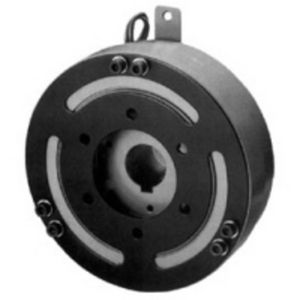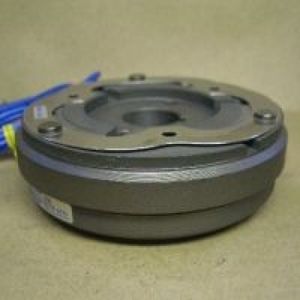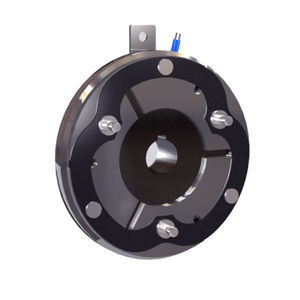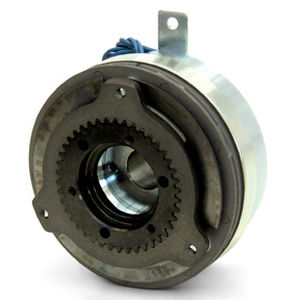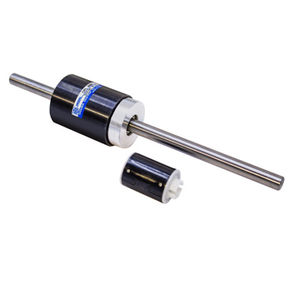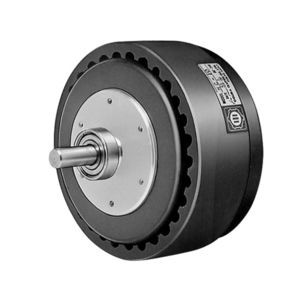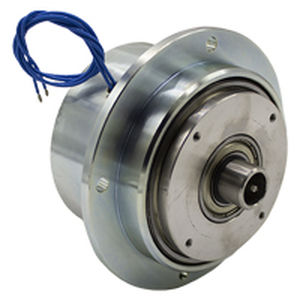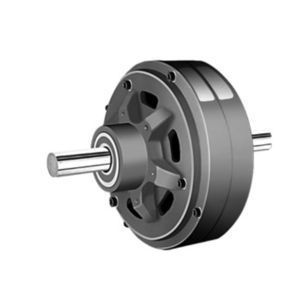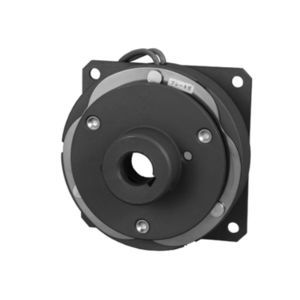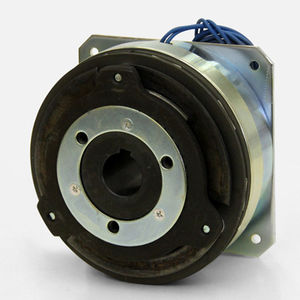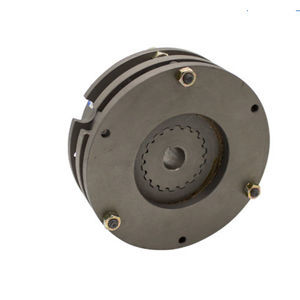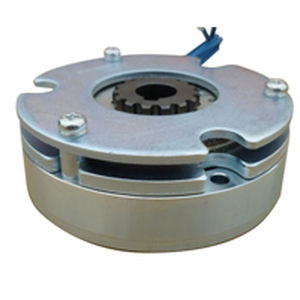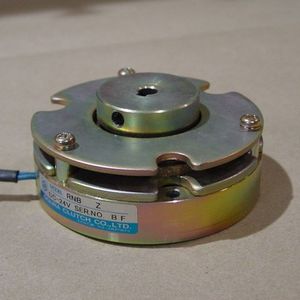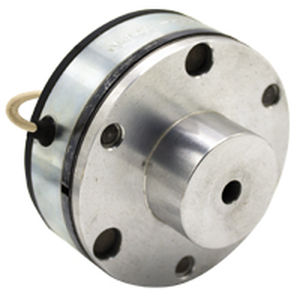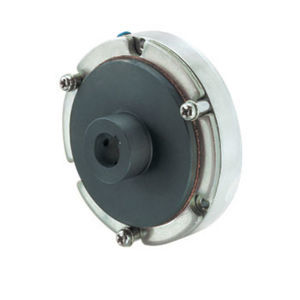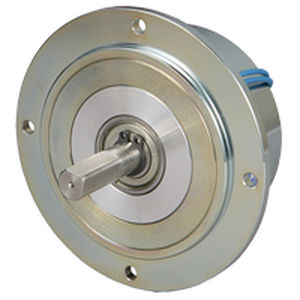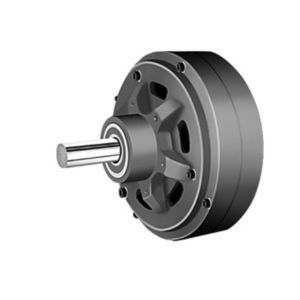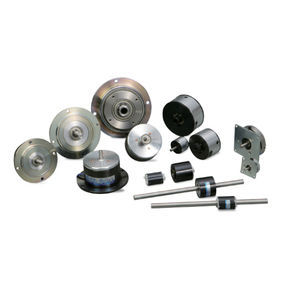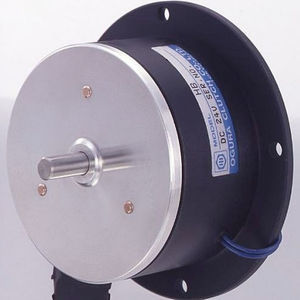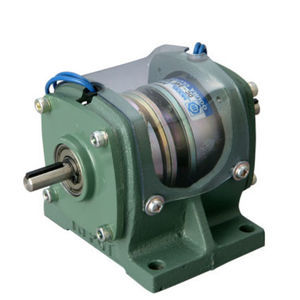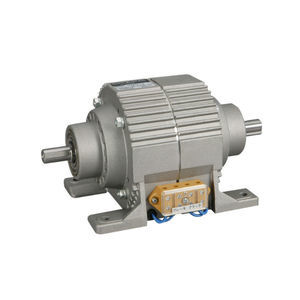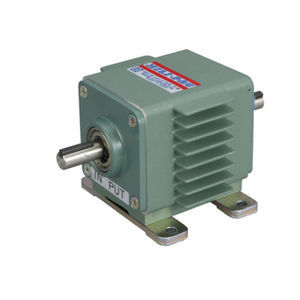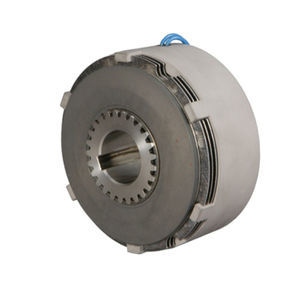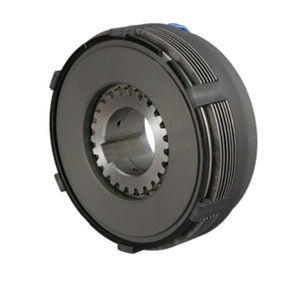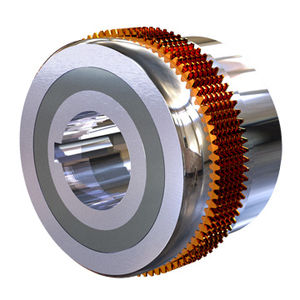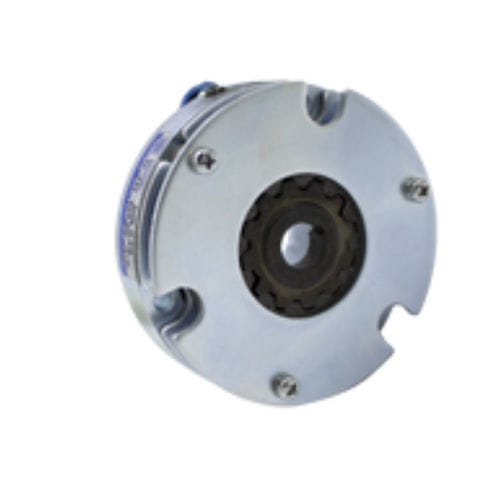

- Company
- Products
- Catalogs
- News & Trends
- Exhibitions
Disc brake SNB serieselectromagneticspringmanual release

Add to favorites
Compare this product
Characteristics
- Type
- disc
- Operation
- electromagnetic, spring, manual release
- Other characteristics
- emergency
- Torque
Min.: 0.74 ft.lb
Max.: 74 ft.lb
- Rotational speed
Min.: 2,500 rpm
(15,707.96 rad.min-1)Max.: 5,000 rpm
(31,415.93 rad.min-1)- Power
Min.: 10 W
Max.: 45 W
Description
Spring applied holding brake designed for general industrial applications. Unit is used for both stopping and/or holding. Very thin brake profile provides a compact package. Braking force is produced via springs so basic fluctuations in voltage and temperature have no effect on the brake. Long life friction material allows for many trouble free cycles. Standard voltages are 24 and 90 volts. Other voltage options are available.
COMPACT DESIGN WITH HIGH TORQUE
The SNB series brakes are approximately one-half the width of MNB style.
TWO BASIC DESIGNS AVAILABLE
The SNB series are designed for stopping and holding.
MANUAL RELEASE HOLES
Starting with SNB series 1.2 and RNB series 3 and higher all units have three tapped holes in which screws can be inserted for manually releasing the brake in case of emergency.
FAST RESPONSE TIME
These brakes are spring-set type brakes, providing rapid torque buildup.
LONGEVITY
The use of wear-resistant friction material provides extended operational life.
OPERATING VOLTAGE OPTIONS
SNB units come in two standard voltages, 90VDC and 24VDC. Other non-standard voltages are available.
VIDEO
Catalogs
Catalog of products
139 Pages
Related Searches
- Friction brake
- Spring brake
- Disc brake
- Electromagnetic brake
- Friction clutch
- Electromagnetic clutch
- Safety brake
- Disc clutch
- Emergency brake
- Clutch and brake
- Spring clutch
- Pneumatic clutch
- Friction clutch and brake
- Manual brake
- Mechanical brake
- Multiple-disc clutch
- Toothed clutch
- Mechanical clutch
- Manual release brake
- Adjustable brake
*Prices are pre-tax. They exclude delivery charges and customs duties and do not include additional charges for installation or activation options. Prices are indicative only and may vary by country, with changes to the cost of raw materials and exchange rates.





